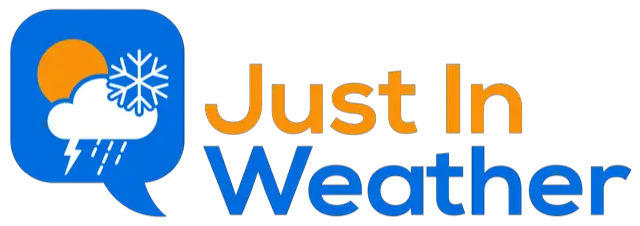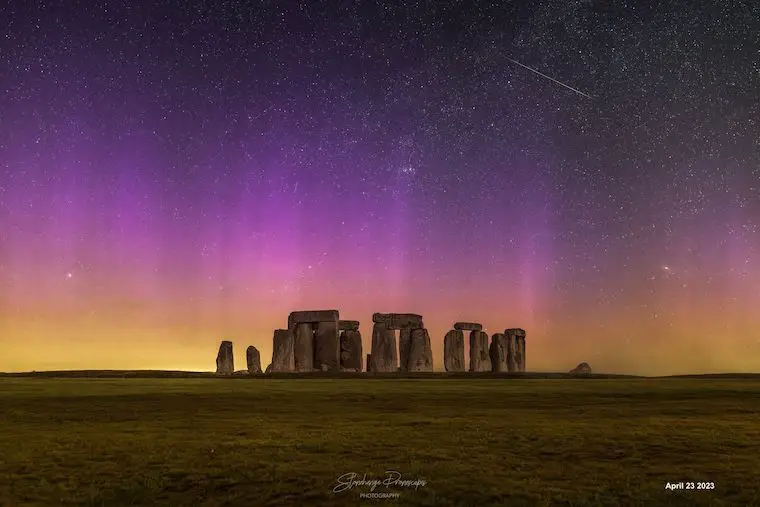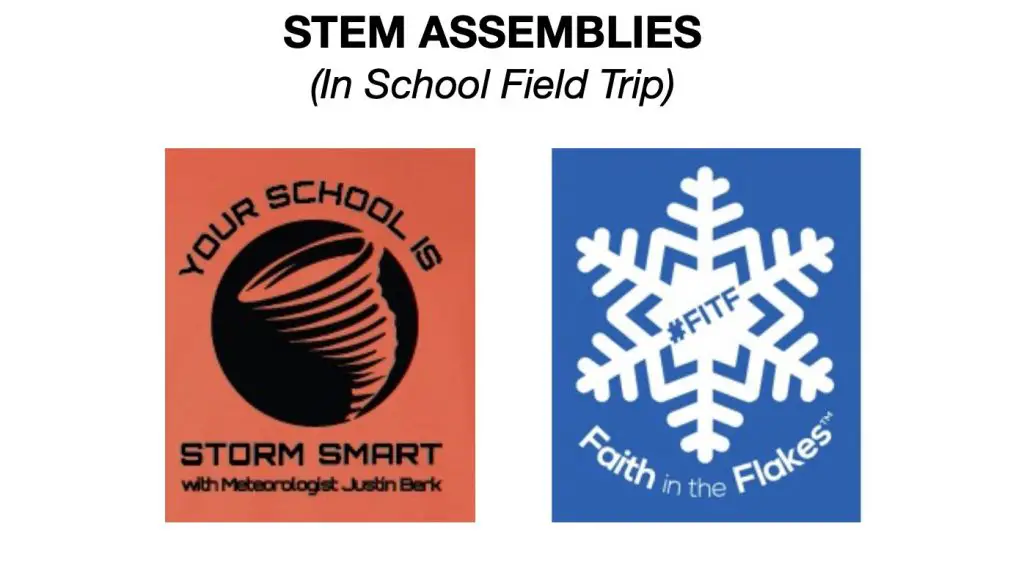NOAA Aurora Forecast Sunday Night: Severe Geomagnetic Storm
Sunday Evening April 23, 2023
This past Friday there was an eruption of energy, also Coronal Mass Ejection (CME) from a solar storm that has been on a path towards Earth. With each update, the projections have shown this to possibly be a stronger event. As of this afternoon, NOAA has issued a Geomagnetic Storm Warning for a Severe Storm. The indication is that there may be a visible aurora where the sky is clear farther south.
Fate is not without a twist of irony. It was exactly one month ago when a similar storm put on a display of the Northern Lights in Maryland and into the Carolinas. I’ll share some reindeer photos below.
CME Model
A Full Halo CME (Coronal Mass Ejection) was observed on Friday April 21, 2023 The initial forecast was for a Moderate G-2 Event. This has been upgraded this afternoon to Severe G4.
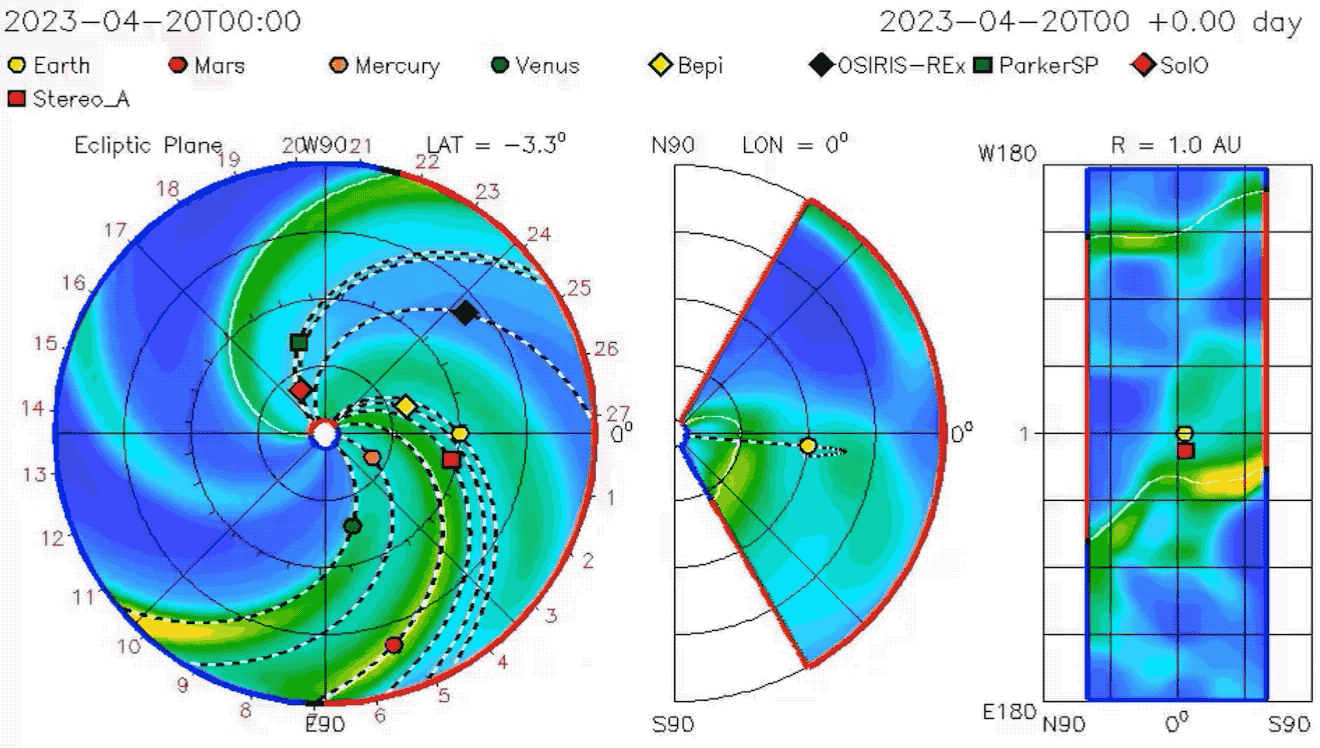
Planetary K Index Up to 8
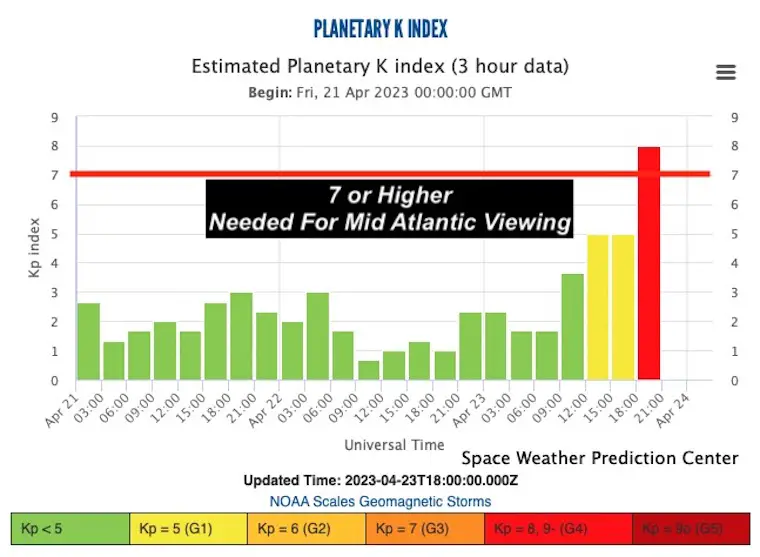
Space Weather on NOAA Scales
There has been a G4 Observed and Forecast Tonight.

UPDATE MONDAY MORNING
Northern Lights Photos
Click to see pics from Stonehenge to the US and daily weather update
What A G4 (Severe) Geomagnetic Storm Means
According to NOAA Scales
Power systems: Possible widespread voltage control problems and some protective systems will mistakenly trip out key assets from the grid.
Spacecraft operations: May experience surface charging and tracking problems, corrections may be needed for orientation problems.
Other systems: Induced pipeline currents affect preventive measures, HF radio propagation sporadic, satellite navigation degraded for hours, low-frequency radio navigation disrupted, and aurora has been seen as low as Alabama and northern California. This is SOUTH of our Mid Atlantic region.
Space Weather Watch Forecast
A moderate (Kp=6), strong (Kp=7), or severe (Kp=8) geomagnetic storm is possible.
Visibility: How Far South?
This map is from the NOAA Space Weather Prediction Center. I highlighted
G = 5; Kp = 9 (These are important parameters)
If met the southern viewing range moves south into southern Virginia and Kentucky.
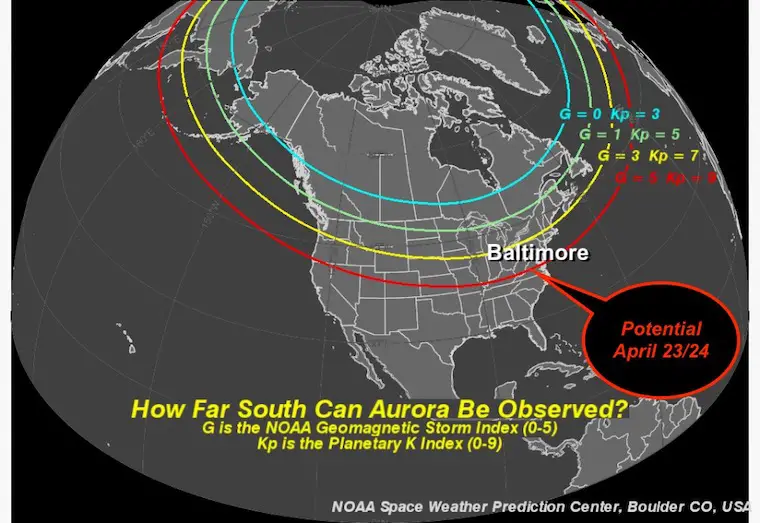
Observations As Of Sunday Afternoon
The Kp was up to 5. If you want a chance to view, we need this to be ABOVE 7 and even better with a rare 9.
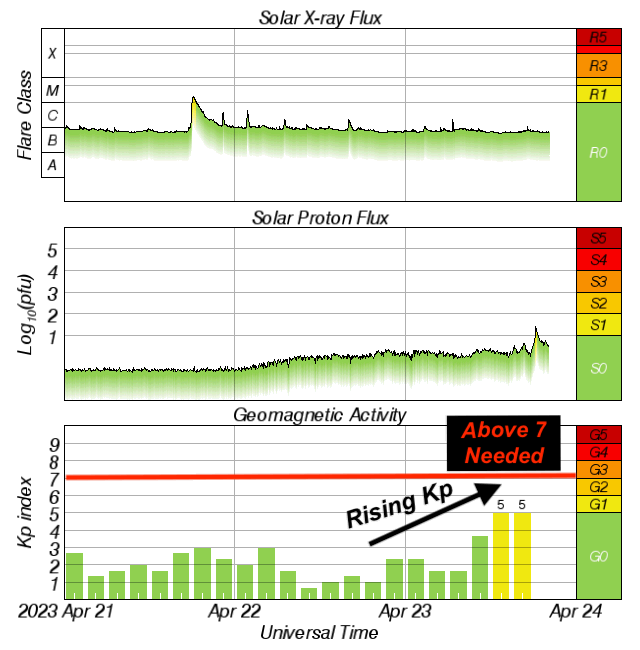
UPDATED FORECAST MAP
I’ve highlighted Baltimore for our region. Their original Tweet is below.
Note: The afternoon clouds are expected to diminish after sunset. The blue is where is it expected to be clear.
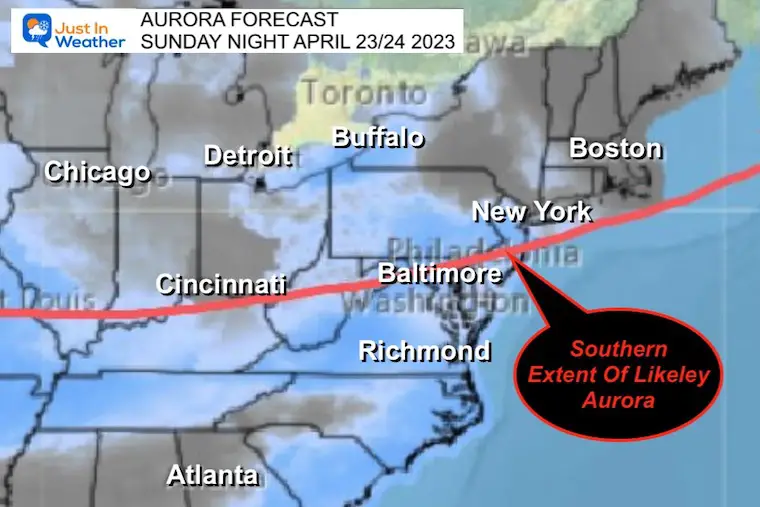
Based on current data, we’ve moved our possible Northern Lights viewing farther south. A moderate, strong, or severe geomagnetic storm is possible.
Aurora viewing is likely in the United States tonight as Earth is impacted by a strong solar storm. The most favorable cloud conditions look to be over the Midwest, Plains and parts of the Great Lakes and less favorable conditions in the Northeast and Northwest.
Full Map
(UPDATED) TONIGHT’S AURORA FORECAST:
Based on current data, we’ve moved our possible Northern Lights viewing farther south. A moderate, strong, or severe geomagnetic storm is possible.
Aurora viewing is likely in the United States tonight as Earth is impacted by a strong solar… pic.twitter.com/rwyY9hvHDt— Space Weather Watch (@spacewxwatch) April 23, 2023
Viewing Tips From NOAA
1. It must be dark: Go out at night. Get away from city lights. The full moon will also diminish the apparent brightness of the aurora (not the actual brightness). One caveat that people often neglect to think of is that the high latitudes where aurora occur are also latitudes where it doesn’t get dark in the summer. So combining a summer vacation to the arctic with aurora watching usually doesn’t work. The aurora may still be there but it is only visible when it is dark.
2. Look UP and NORTH
3. Timing: Best aurora is usually within an hour or two of midnight (between 10 PM and 2 AM local time). These hours of active aurora expand towards evening and morning as the level of geomagnetic activity increases. There may be aurora in the evening and morning but it is usually not as active and therefore, not as visually appealing. The best Seasons for aurora watching are around the spring and fall equinoxes. Due to subtleties in the way the solar wind interacts with Earth’s magnetosphere, there is a tendency towards larger geomagnetic storms, and thus better auroras, to occur near the equinoxes. However, the number of hours of darkness decreases (increases) rapidly near the spring (fall) equinox so this caveat must be considered for those traveling to see the aurora.
Recent Aurora Seen In Virginia
Back on March 23/24, Peter Forister captured the views of a lifetime. He actual had come back from a trip to Iceland and got what he was seeking at home.
Northern lights over Virginia’s Shenandoah Valley last night. Towering pillars and vivid colors were visible for a few unforgettable moments.
📍 Big Meadows, @ShenandoahNPS, Virginia, USA pic.twitter.com/4ZNv7qbxUk
— Peter Forister ⚡️🌪️⚡️ (@forecaster25) March 24, 2023
Also See:
Meteor Sighting Friday Night November 4: Video From Baltimore County And Map Where It Tracked
OTHER REPORTS:
NEW: April Heat Wave History
Winter 2023 Recap: My BUSTED Snow Outlook
La Niña Has Ended. El Niño May Return By Fall
Subscribe for eMail Alerts
Weather posts straight to your inbox
Sign up and be the first to know!
STEM Assemblies/In School Fields Trips Are Back
Click to see more and ‘Book’ a visit to your school
Please share your thoughts, best weather pics/videos, or just keep in touch via social media
-
Facebook: Justin Berk, Meteorologist
-
Twitter
-
Instagram
RESTATING MY MESSAGE ABOUT DYSLEXIA
I am aware there are some spelling and grammar typos, and occasional other glitches. I take responsibility for my mistakes, and even the computer glitches I may miss. I have made a few public statements over the years, but if you are new here you may have missed it: I have dyslexia, and found out during my second year at Cornell University. It didn’t stop me from getting my meteorology degree, and being first to get the AMS CBM in the Baltimore/Washington region. One of my professors told me that I had made it that far without knowing, and to not let it be a crutch going forward. That was Mark Wysocki and he was absolutely correct! I do miss my mistakes in my own proofreading. The autocorrect spell check on my computer sometimes does an injustice to make it worse. I also can make mistakes in forecasting. No one is perfect predicting the future. All of the maps and information are accurate. The ‘wordy’ stuff can get sticky. There has been no editor that can check my work when I needed it and have it ready to send out in a newsworthy timeline. Barbara Werner is a member of the web team that helps me maintain this site. She has taken it upon herself to edit typos, when she is able. That could be AFTER you read this. I accept this and perhaps proves what you read is really from me… It’s part of my charm.
#FITF



